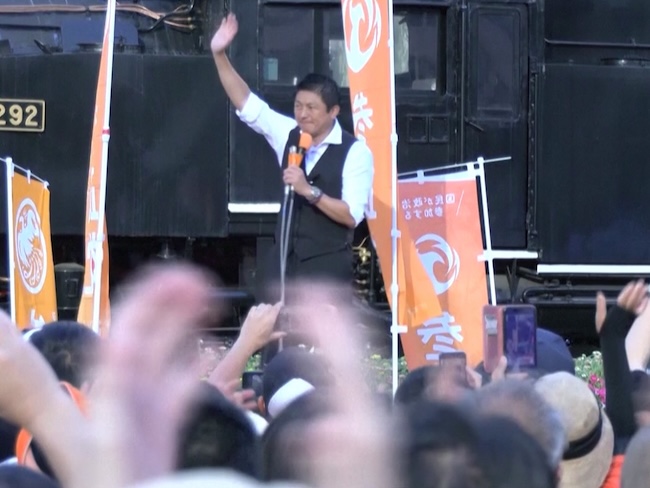Japan's Far-Right Sanseito Party a Creature of Social Media
By Reuters | 27 Jul, 2025
Fears of Chinese takeover and annoyance with foreigners bring together Japan's xenophobic young males into a rising rightwing political party.
Yuta Kato is among a growing number of Japanese voters drawn to the far-right Sanseito party, annoyed by foreigners he says are ignorant of Japan's social etiquette.
Like many Sanseito supporters, Kato obtains his information from YouTube and other social media sites.
The party has utilized the online space to amplify its "Japanese First" message, helping it establish a strong foothold in an upper house election on Sunday.
"I think a lot of foreign visitors don’t know the rules that are obvious to us. Also in Ginza, you see people sitting anywhere — on steps and ledges. It doesn’t look good. For the Japanese people living in Japan, it’s kind of annoying."
Japan's foreign-born residents account for just 3% of the total population, a fraction of the corresponding proportion in the United States and Europe.
But record numbers of tourists have made foreigners more visible in major cities.
One of the party's policies listed on its website is to "stop the silent invasion of Japan by foreign forces."
While Sanseito largely avoids identifying specific immigrant groups, Tokyo-based academic, Romeo Marcantuoni, says it taps into concerns ranging from badly-behaved tourists to conspiracy theories about sneaking Chinese influence.
“People who read newspapers and made their decisions based on that are voting for the traditional parties and people who are reading a lot of, rather, either reading a lot of blogs, reading a lot of social media posts, and looking at a lot of YouTube to make their decisions, they’re going more towards these anti-establishment parties.”
Sanseito is most popular among 18 to 39-year-olds, with men favoring the party more than women.
In contrast, support for the ruling Liberal Democratic Party (LDP), which lost its majority in Sunday's election, is deepest among those aged over 70.
Birthed during the COVID-19 pandemic when they spread conspiracy theories about vaccinations, Sanseito has broadened its appeal with its tough immigration policies and pledges to help households struggling with rising prices.
The rise of the party has sparked a backlash by those who fear it is normalizing xenophobia.
Masayuki Nabekura, member of an anti-racism group, said Sanseito incites racial discrimination.
"It (Sanseito) condones violence and advocates nationalism, and it has made campaign promises that could easily condone the suppression of citizens who do not agree with them, so it is very dangerous.”
The party did not immediately respond to a request for comment, and its leader has previously denied criticism that it is xenophobic.
At a recent rally, supporters said they are here to stay:
“I think it is simple, everyone came to the Sanseito because they were all sick with the current political situation."

Asian American Success Stories
- The 130 Most Inspiring Asian Americans of All Time
- 12 Most Brilliant Asian Americans
- Greatest Asian American War Heroes
- Asian American Digital Pioneers
- New Asian American Imagemakers
- Asian American Innovators
- The 20 Most Inspiring Asian Sports Stars
- 5 Most Daring Asian Americans
- Surprising Superstars
- TV’s Hottest Asians
- 100 Greatest Asian American Entrepreneurs
- Asian American Wonder Women
- Greatest Asian American Rags-to-Riches Stories
- Notable Asian American Professionals

